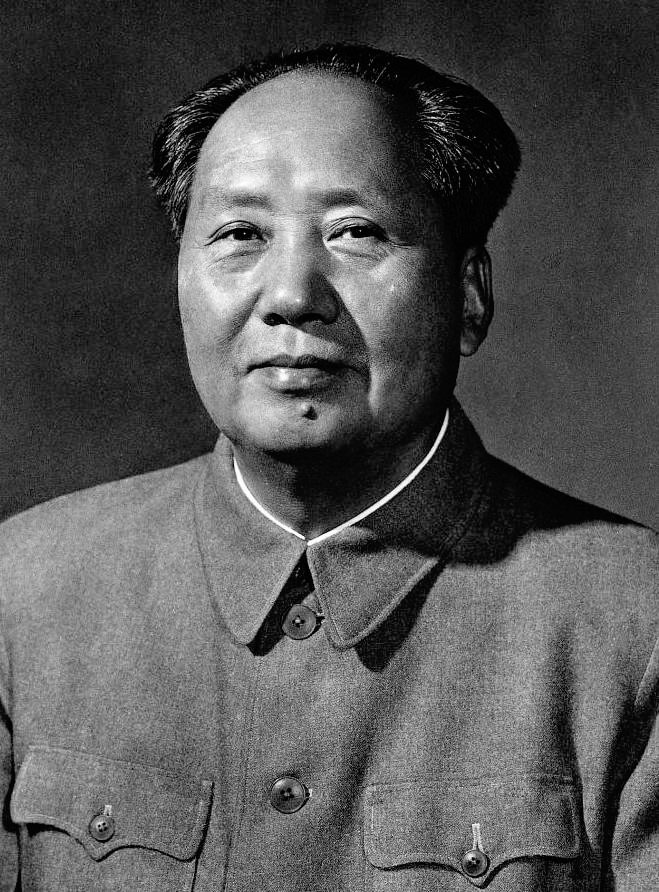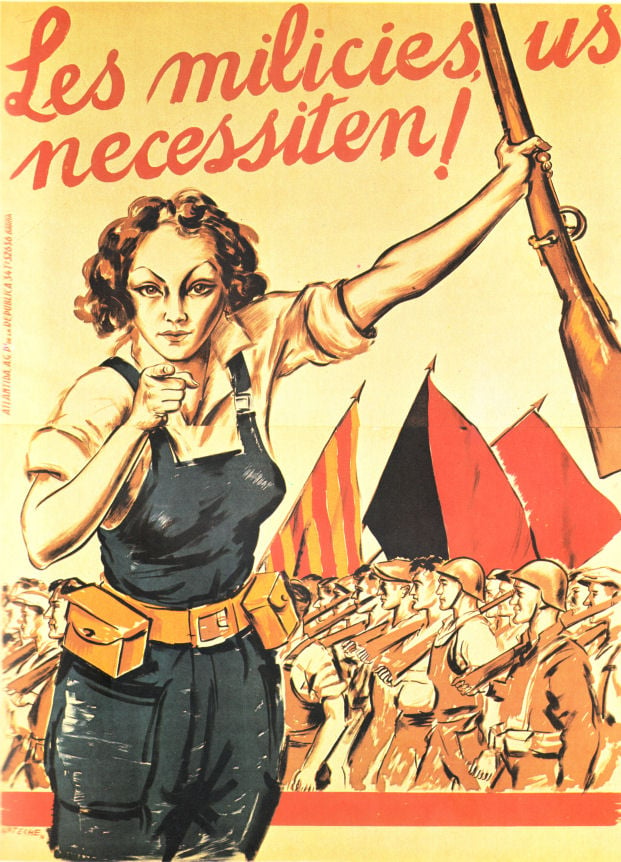Mao Zedong (1893 - 1976)
Tue Dec 26, 1893

Image: Mao Zedong 1963 [Wikipedia]
Mao Zedong, born on this day in 1893, was a communist revolutionary and a founder of the People’s Republic of China, which he governed as Chairman of the Communist Party of China from 1949 until his death in 1976. Making his own innovations on Marxism-Leninism, his theories, military strategies, and political policies are collectively known as Maoism.
The son of a peasant farmer, Mao Zedong was born on December 26th, 1893 in the village of Shao Shan, Hunan province. At age 27, Mao attended the First Congress of the Chinese Communist Party in Shanghai, in July 1921. Two years later, he was elected to the Central Committee of the party at the Third Congress.
From 1931 to 1934, Mao helped established the Chinese Soviet Republic in Southeast China, and was elected as the chairman. Starting in October 1934, “The Long March” began, an arduous military retreat from southeast to northwest China. The Long March took place over 9,000 kilometers (5,600 miles) in 370 days. Following the conclusion of the Second Sino-Japanese War, a civil war broke out in which the Communists defeated the Kuomintang and established the People’s Republic of China in October 1949.
Several monumental events in Chinese history occurred during Mao’s administration, such as the Great Leap Forward, the Cultural Revolution, Chinese involvement in both the Korean War and the Vietnam War, the Sino-Soviet split, and Richard Nixon’s 1972 diplomatic visit to Beijing.
In 1946, Mao gave an interview to American journalist Anna Louise Strong. Here is a short excerpt:
Strong: Do you think there is hope for a political, a peaceful settlement of China’s problems in the near future?
Mao: That depends on the attitude of the U.S. government. If the American people stay the hands of the American reactionaries who are helping Chiang Kai-shek fight the civil war, there is hope for peace.
…
Strong: Suppose the United States uses the atom bomb? Suppose the United States bombs the Soviet Union from its bases in Iceland, Okinawa and China?
Mao: The atom bomb is a paper tiger which the U.S. reactionaries use to scare people. It looks terrible, but in fact it isn’t. Of course, the atom bomb is a weapon of mass slaughter, but the outcome of a war is decided by the people, not by one or two new types of weapon.
Mao: All reactionaries are paper tigers. In appearance, the reactionaries are terrifying, but in reality they are not so powerful. From a long-term point of view, it is not the reactionaries but the people who are really powerful. In Russia, before the February Revolution in 1917, which side was really strong? On the surface the tsar was strong but he was swept away by a single gust of wind in the February Revolution. In the final analysis, the strength in Russia was on the side of the Soviets of Workers, Peasants and Soldiers. The tsar was just a paper tiger. Wasn’t Hitler once considered very strong? But history proved that he was a paper tiger. So was Mussolini, so was Japanese imperialism. On the contrary, the strength of the Soviet Union and of the people in all countries who loved democracy and freedom proved much greater than had been foreseen.
Mao: Chiang Kai-shek and his supporters, the U.S. reactionaries, are all paper tigers too. Speaking of U.S. imperialism, people seem to feel that it is terrifically strong. Chinese reactionaries are using the “strength” of the United States to frighten the Chinese people. But it will be proved that the U.S. reactionaries, like all the reactionaries in history, do not have much strength. In the United States there are others who are really strong – the American people.
Mao: …Although the Chinese people still face many difficulties and will long suffer hardships from the joint attacks of U.S. imperialism and the Chinese reactionaries, the day will come when these reactionaries are defeated and we are victorious. The reason is simply this: the reactionaries represent reaction, we represent progress.
“A revolution is not a dinner party, nor a literary composition, nor painting nor embroidering. It cannot be done so delicately, so leisurely, so gentlemanly and gently, kindly, politely and modestly. Revolution is insurrection, the violent action of one class overthrowing the power of another. An agrarian revolution is a revolution by the peasantry to overthrow the power of the feudal landlord class. If the peasants do not apply great force, the power of the landlords, built up over thousands of years, can never be uprooted.”
- Mao Zedong
- Date: 1893-12-26
- Learn More: en.wikipedia.org, www.marxists.org, www.marxists.org, www.marxists.org, theanarchistlibrary.org.
- Tags: #Communism, #Labor, #Marxism, #Birthdays, #Imperialism.
- Source: www.apeoplescalendar.org


What a pile of human excrement 🫡 Good riddance.